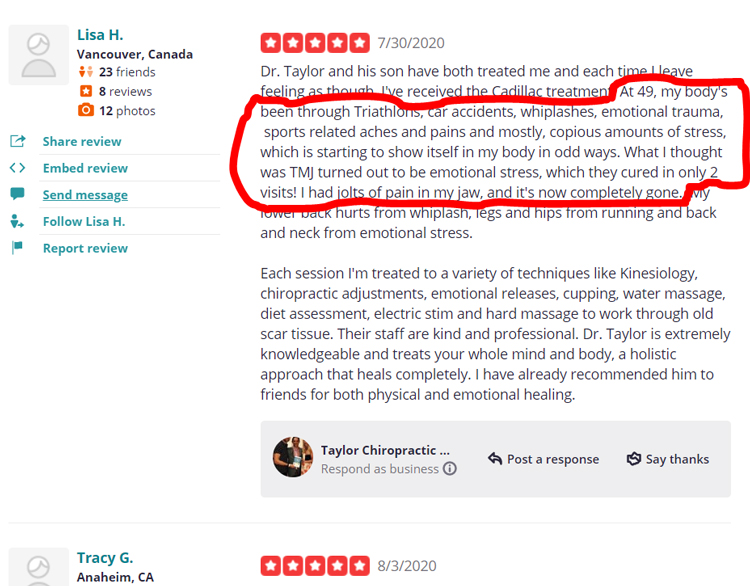
The other day, our 20-year-old son moved out of the house to join his two older brothers who live at my parents' home. They remodeled her backroom this summer to make it happen (see picture above).
It is only 7 miles down the road and we all still have dinner together a couple times a week, but the sadness around the dinner table the night he moved out was almost unbearable.
Everyone was in tears as we talked about how much we missed Caden being in the house.
I thought it would help the family if we talked about why we missed him so much, and second guessed myself afterwards as it made us cry even more.
Usually there is laughter around the table, but that night it felt like we were all giving a eulogy at a funeral.
There are events that occur in our lives that can make us sad.
Sometimes these events are few and far between, other times they occur frequently.
When you are sad, it can lower hormone levels like dopamine.
Dopamine is a brain neurotransmitter that is associated with mood disorders such as depression and ADHD.
A sad and trying event can not only lead to emotional pain, but also to physical pain and disease.
Research has shown that prolonged emotional stress is linked to chronic inflammation, weakened immune function, high blood pressure, altered blood sugars, and even increased tumor growth.
In fact, it has been estimated that 75-90% of all visits to primary care physicians are for stress related symptoms.
Most patients coming in my office do not recognize this fact and try to correct their health problem without addressing the real stress that is causing the problem.
They think that taking a medication to alleviate their symptom is going to solve the problem but that can often add more stress to the body and prolong the condition.
They may try some type of device or brace, but if it is not addressing the main source of stress this also can prolong the problem.
(For example, yesterday a patient came in using a knee sleeve, a knee brace, AND crutches to alleviate her knee pain, but they were only prolonging her condition for the past month. We addressed her main stressor & she left the office not having to use any of them.)
Identifying & addressing your main stressor is often the KEY to resolving just about any health condition.
What does this have to do with our sad family dinner the other night?
When we were all crying around the table it served a God-given purpose that helped us during a difficult time.
- Tears are designed to help you, as well as others, know that you are sad about something. It helps you get in touch with the emotion of sadness for yourself, and lets others know as well so they can come alongside of you with compassion to help you get through the stress.
- Emotional Tears also stimulate the parasympathetic nervous system which helps release stress hormones like ACTH (Adrenocorticotropic Hormones).
All of this is important because when you do not identify and express your emotions, they can get 'stuck' or 'trapped' in the body which can manifest as 'pain' in the body.
Here is what one patient graciously reviewed on Yelp the other day:
"At 49, my body's been through Triathlons, car accidents, whiplashes, emotional trauma, sports related aches and pains and mostly, copious amounts of stress, which is starting to show itself in my body in odd ways. What I thought was TMJ turned out to be emotional stress, which they cured in only 2 visits! I had jolts of pain in my jaw, and it's now completely gone."
I know this is a rather lengthy post, but this concept is so important as your health depends on it.
If you are still with me, I want to leave you with three simple take-aways to reduce your emotional stress, which can be helpful, especially in times we are having now.
- Make it a habit to identify & address the stressors in your life.
- Don't stuff, ignore, or pretend that your emotions do not exist.
- Let the tears flow when you feel them coming on.
BTW - all the family was over for dinner last night and the laughter returned to the house just as fast as it left it.
Crying may seem to make you feel worse initially, but it often sets you up to experience more joy later. Remember that tears are temporary.
"Weeping may endure for a night, but joy comes in the morning."
Have a Terrific Thursday!
Dr. Derek 'Salt Water is the cure - sweat, tears, the ocean' Taylor

OUR LOCATIONS:
Torrance
Palm Beach Gardens



